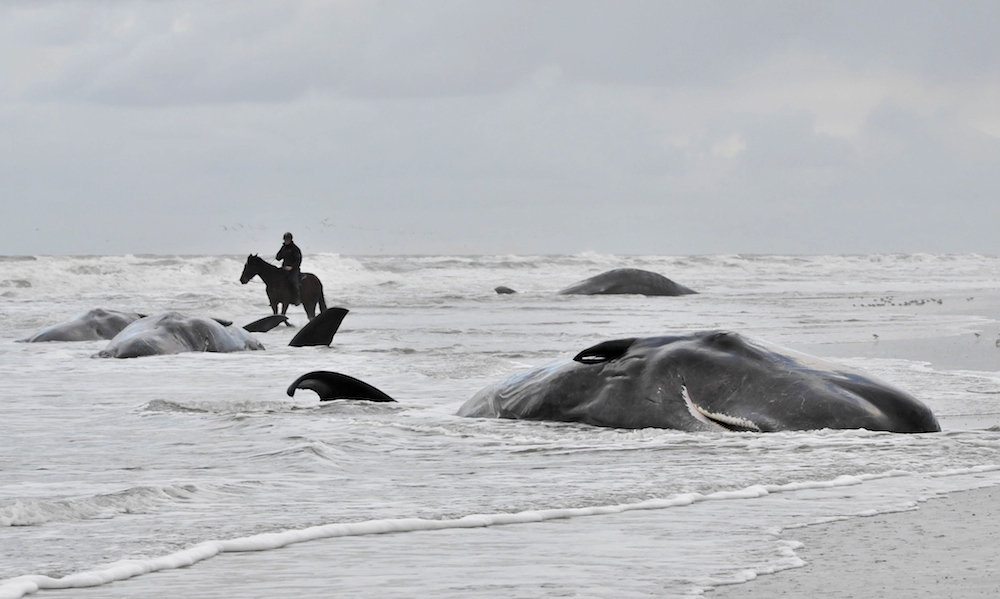Multiple causes for 2016 sperm whale mass strandings, scientists say


An international investigation into the stranding of 30 sperm whales in the southern North Sea in 2016 – including seven in the Netherlands – has concluded that the event most probably occurred due to a combination of several complex environmental factors.
Lead author Lonneke IJsseldijk of the faculty of veterinary medicine at Utrecht University said that human actions were unlikely to be involved. ‘We found no evidence of man-made trauma,’ IJsseldijk said in a press release.
The whales were across five countries over a period of six weeks in early 2016, after entering the southern North Sea where the water becomes progressively shallower – a known global hotspot for sperm whale strandings.
Teams of international scientists and experts from around Europe came together to investigate the event. In total tests on 27 animals, all young males aged between 10 and 16 years old showed they had probably foraged for the last time in Norwegian waters, at least 1,300 kilometers away.
The scientists found several infections but these were determined to be incidental. Nor was there any evidence the whales had hit a ship or become entangled in nets. Nine whales had ingested plastic but this had not led to the starvation.
The scientists were unable to determine why the whales had entered the southern North Sea, which has shallow waters, making it difficult for them to navigate effectively. In addition, their type of squid they eat is not found there.
‘Once the whales entered the southern North Sea, they were unfortunately really up against it,’ said IJsseldijk. ‘As highly specialised deep-water feeders, their bio-sonar wouldn’t have been able to function effectively in this very shallow region, meaning that unless they found their way back out again, their stranding – in what is effectively an ‘acoustic dead zone’ for deep diving species – would have been inevitable.’
Thank you for donating to DutchNews.nl.
We could not provide the Dutch News service, and keep it free of charge, without the generous support of our readers. Your donations allow us to report on issues you tell us matter, and provide you with a summary of the most important Dutch news each day.
Make a donation